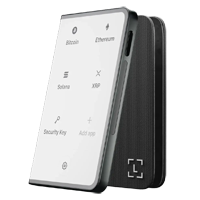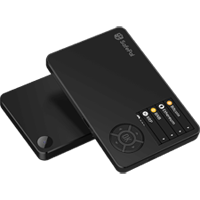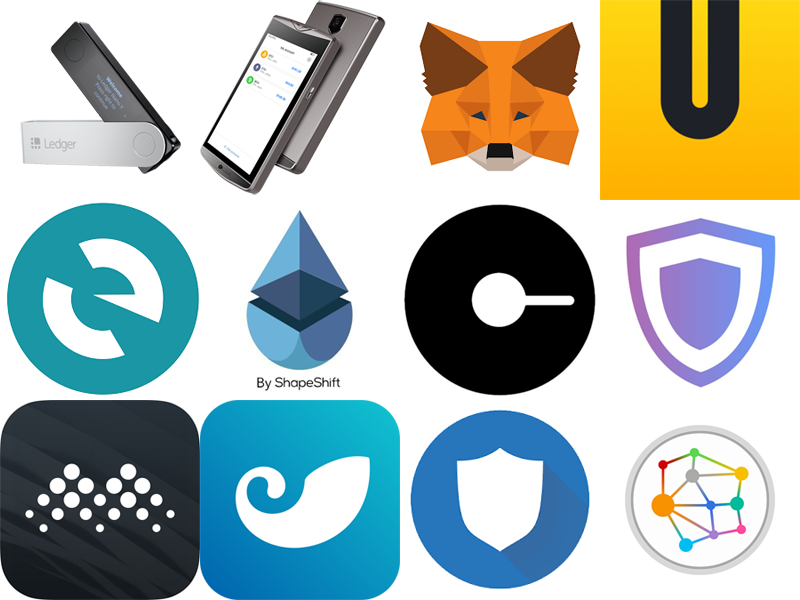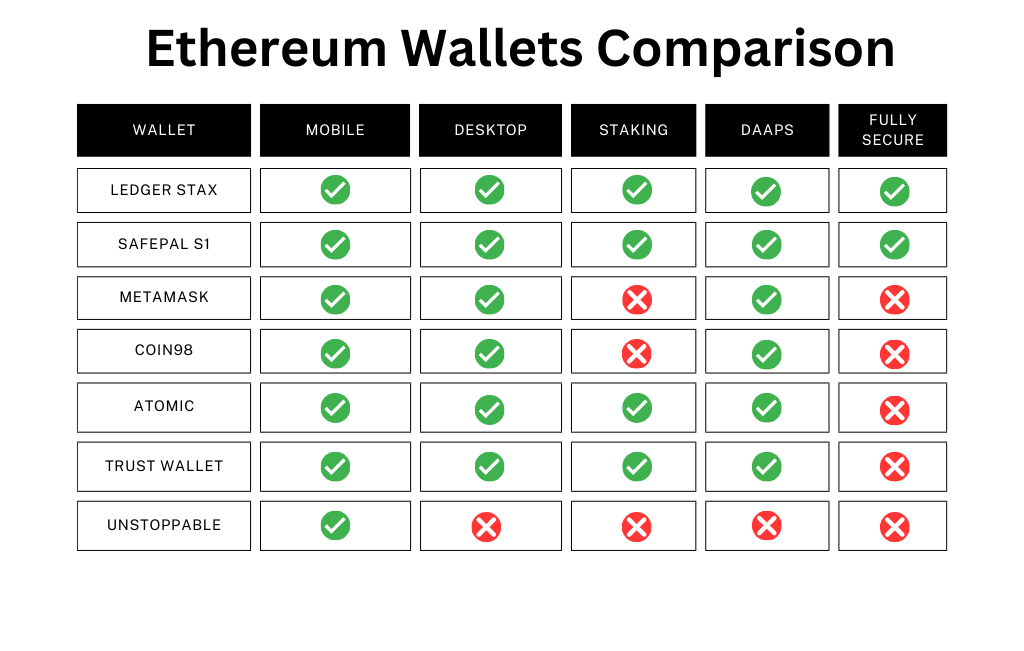Best Ethereum wallets to manage Ether ETH cryptocurrency and tokens, buy, stake Ethereum, and access DApps.

Ethereum is a blockchain platform with its native cryptocurrency, Ether (ETH). It operates on a proof-of-stake consensus protocol and has long been the second-largest cryptocurrency after Bitcoin. While Bitcoin primarily enables users to send, store, and receive value through its decentralized blockchain and wallet, Ethereum extends these capabilities with smart contracts.
Through its Ethereum Virtual Machine (EVM), developers can build decentralized applications (DApps) on the platform. This has paved the way for a wide range of innovations, including decentralized finance (DeFi) protocols like Uniswap, Compound, SushiSwap, Curve, and Yearn.finance (YFI), as well as NFT marketplaces, games, and more.
Smart contracts have also facilitated the creation of thousands of ERC-20 tokens, introducing new cryptocurrencies and projects. Ethereum wallets can store these tokens, while the ERC-721 token standard underpins Ethereum-based NFTs (non-fungible tokens).
Ethereum wallets are versatile tools that enable users to store, send, receive, and stake Ether (ETH) while interacting with decentralized applications. They also provide access to features like managing ERC20 tokens and connecting to the Ethereum blockchain ecosystem.
Best Ethereum Wallets Comparison
Best Ethereum Wallets
- Ledger Stax – Best Hardware Wallet for Ethereum
- SafePal S1 – Best Affordable Hardware Wallet for Ethereum
- MetaMask – Best Browser Extension Wallet
- Coin98 – Best Multichain Wallet
- Atomic Wallet – Best Ethereum Desktop Wallet
- Trust Wallet – Best Wallet for Ethereum NFTs
- Unstoppable – Best for Beginners
What is the best Ethereum wallet?
This is the list of the 7 best Ethereum wallets in 2025. When it comes to the safety of your crypto assets, hardware wallets are always the best choice.
1. Ledger Stax

Ledger Stax is a cutting-edge hardware wallet with an innovative curved e-ink touchscreen, offering a sleek, smartphone-like experience. It supports over 5,500 cryptocurrencies, including Ethereum, and ensures advanced protection for long-term crypto holders.
The Ledger Live app is available for Windows, macOS, Linux, iOS, and Android.
- Safely receive, send, store, and buy Ethereum cryptocurrency
- Top-notch security only a hardware wallet can provide
- Ledger Live features
- Connect to Ethereum software wallets and access their features while keeping your coins and tokens 100% secure
- Features a curved E-Ink touchscreen display, a major upgrade from the traditional button-based interface
- Manage Ethereum tokens and NFTs
- Safe Ethereum staking
Ledger Stax price is 399,00€
2. SafePal S1

SafePal S1 is a budget-friendly hardware wallet with offline QR-code-based transactions and air-gapped security. It supports Ethereum staking and over 10,000 cryptocurrencies.
SafePal app is available for Chrome, Firefox, Edge, iOS, and Android.
- Safely receive, send, store, and buy Ethereum cryptocurrency
- Top-notch security only a hardware wallet can provide
- Affordable
- Access and use dApps
- Manage Ethereum tokens and NFTs
- Safe Ethereum staking
3. MetaMask

MetaMask is a popular browser-based and mobile wallet known for its simplicity and DApp integration. It allows users to store Ethereum and ERC-20 tokens, manage private keys, and seamlessly interact with DeFi platforms and NFT marketplaces.
Available for Chrome, Firefox, Brave, Edge, Opera, iOS and Android.
- Receive, send, and store Ethereum cryptocurrency
- Free and open-source
- Easy setup and user-friendly interface
- Access and use dApps
- Manage Ethereum tokens and NFTs
4. Coin98

Coin98 Wallet is a multi-chain wallet that supports Ethereum and numerous other blockchains, offering seamless interaction with dApps and DeFi services. Its sleek design and integrated Web3 browser make it an excellent choice for both beginners and experienced users.
Available for Chrome, iOS, and Android.
- Receive, send, and store Ethereum cryptocurrency
- Supports multi-chain networks alongside Ethereum
- Integrated dApp browser for easy Web3 access
- Manage Ethereum tokens and NFTs
5. Atomic

Atomic wallet is a multi-platform software wallet with Ethereum staking capabilities and a built-in decentralized exchange. It’s great for managing Ethereum and other tokens on both desktop and mobile.
Available for Windows, MacOS, Ubuntu, Debian, Fedora, iOS and Android.
- Receive, send, and store Ethereum cryptocurrency
- Built-in exchange
- User-friendly interface
- Ethereum staking
6. Trust Wallet

Trust Wallet is a mobile-first wallet that supports Ethereum, NFTs, and staking. It’s free, open-source, and ideal for users seeking simplicity and accessibility.
Available for Chrome, Brave, Edge, Opera, iOS and Android.
- Receive, send, and store Ethereum cryptocurrency
- Easy for beginners
- Access and use dApps
- Manage Ethereum tokens and NFTs
7. Unstoppable

Unstoppable Wallet is a privacy-focused mobile app ideal for securely managing Ethereum and multiple cryptocurrencies. While it doesn’t support staking or advanced features like DApps integration, it offers a “Markets” tab, providing live cryptocurrency price tracking and market news, making it a useful tool for staying informed.
Available for iOS and Android.
- Receive, send, and store Ethereum cryptocurrency
- User-friendly interface
- Manage Ethereum tokens and NFTs
Types of Ethereum Wallets
Ethereum wallets are crucial for storing, managing, and interacting with your Ether (ETH) and Ethereum-based assets. They act as gateways to the blockchain, enabling users to send, receive, and access decentralized applications (DApps). Different types of wallets cater to diverse needs, offering various balances of security, convenience, and functionality. Understanding the categories—such as hardware, software, mobile, web, and paper wallets—helps users select the right solution, whether prioritizing offline security, ease of access, or advanced features like staking and DApp integration. Let’s explore the key types of Ethereum wallets!
Hardware Wallets: Maximum Security for Long-Term Holding
Hardware wallets like Ledger Stax offer unmatched security by keeping private keys offline. These devices integrate with tools like MetaMask, enabling secure interactions with Ethereum and other blockchains. Their durability and user-friendly designs make them ideal for those prioritizing protection.
Software Wallets: Convenient Access for Active Users
MetaMask stands out as a versatile software wallet, allowing users to manage Ethereum and interact with DeFi platforms seamlessly. It’s available as a browser extension or mobile app, making it accessible for daily transactions. Trust Wallet, with its easy-to-use interface and multi-token support, offers additional features like staking and built-in exchanges.
Mobile Wallets: Crypto on the Go
Mobile wallets are a convenient solution for users who prioritize accessibility and active management of their crypto assets. They combine ease of use with the ability to track and transact across multiple cryptocurrencies seamlessly. Coin98 Wallet is a standout example, designed to support numerous blockchains while offering features like DeFi integration, NFT management, and in-app swaps. With a sleek interface and advanced tools, it caters to both casual and experienced users, making it an excellent choice for staying connected to the crypto world from your mobile device.
Paper Wallets
For those seeking ultra-secure offline storage, paper wallets are an option. By printing private and public keys on paper, they eliminate online hacking risks. However, users must carefully protect the physical document from damage or loss to ensure their assets remain secure.
FAQ
Here are answers to some of the most frequently asked questions about the Ethereum blockchain, wallets, and the ETH cryptocurrency.
1. What is an Ethereum Wallet?
An Ethereum wallet is a secure digital tool used to store, manage, and interact with Ether (ETH) and other assets built on the Ethereum blockchain, such as ERC-20 tokens and NFTs. It acts as a gateway to the Ethereum network, enabling users to send and receive ETH, engage with decentralized applications (dApps), and participate in staking or other blockchain activities. Instead of holding the assets directly, the wallet stores cryptographic keys (private and public keys), which grant access to your funds and transactions recorded on the blockchain.
2. What makes Ethereum different from other blockchains?
Ethereum stands out because it offers a programmable blockchain that supports smart contracts and decentralized applications (dApps). This functionality enables developers to build and run a variety of applications, unlike Bitcoin, which primarily functions as a digital currency.
3. What is gas, and why do I need it?
Gas is the fee paid to process transactions and execute operations on the Ethereum network. Users pay gas in ETH, and the fee varies depending on network activity and the complexity of the transaction.
4. Why are Ethereum gas fees sometimes so high?
Gas fees are determined by supply and demand. When network activity is high, competition to include transactions in blocks increases, causing gas fees to spike. Layer 2 solutions and scaling upgrades aim to reduce these costs.
5. How do I recover an Ethereum wallet?
If you’ve lost access to your wallet, you can recover it using your seed phrase (usually 12 or 24 words). Without the seed phrase, recovery is impossible, so it’s crucial to store it securely in an offline location.
6. Can I use the same Ethereum wallet across multiple devices?
Yes, you can access your Ethereum wallet on multiple devices by importing it using your private key or seed phrase. However, ensure each device is secure, and avoid entering your keys on public or untrusted devices.
7. Can I use my Ethereum wallet for NFTs?
Yes, Ethereum wallets like MetaMask and Trust Wallet support NFTs. You can view, store, and transfer NFTs, as well as interact with NFT marketplaces like OpenSea directly through these wallets.
8. What Are the Best Ethereum Blockchain Explorers?
Ethereum blockchain explorers are powerful tools for tracking transactions, exploring wallet balances, viewing token information, and monitoring network activity. Here are some of the best Ethereum blockchain explorers:
- Etherscan
Etherscan is the most widely used Ethereum explorer, offering detailed insights into transactions, wallet balances, gas fees, token contracts, and smart contract interactions. It’s user-friendly and regarded as the gold standard for Ethereum explorers. - Ethplorer
Ethplorer focuses on tracking Ethereum tokens, allowing users to view token analytics, wallet holdings, and token-specific transactions. It’s a great tool for token-related data and portfolio tracking. - Blockchair
Blockchair is a multi-blockchain explorer that includes Ethereum. It provides advanced filtering options, enabling users to search for transactions, addresses, and blocks with granular details. - Etherchain
Etherchain provides similar functionality to Etherscan but with a focus on real-time network metrics like gas prices, mining difficulty, and block rewards. It’s useful for tracking live network statistics.
Each of these explorers serves unique purposes, so users can choose based on whether they need basic transaction tracking or more advanced analytics for Ethereum and its ecosystem.
9. Can I use Ethereum in online casinos?
Yes, you can use Ethereum (ETH) in online casinos! Explore our guide to the seven best Ethereum casinos with no KYC required for more details.


